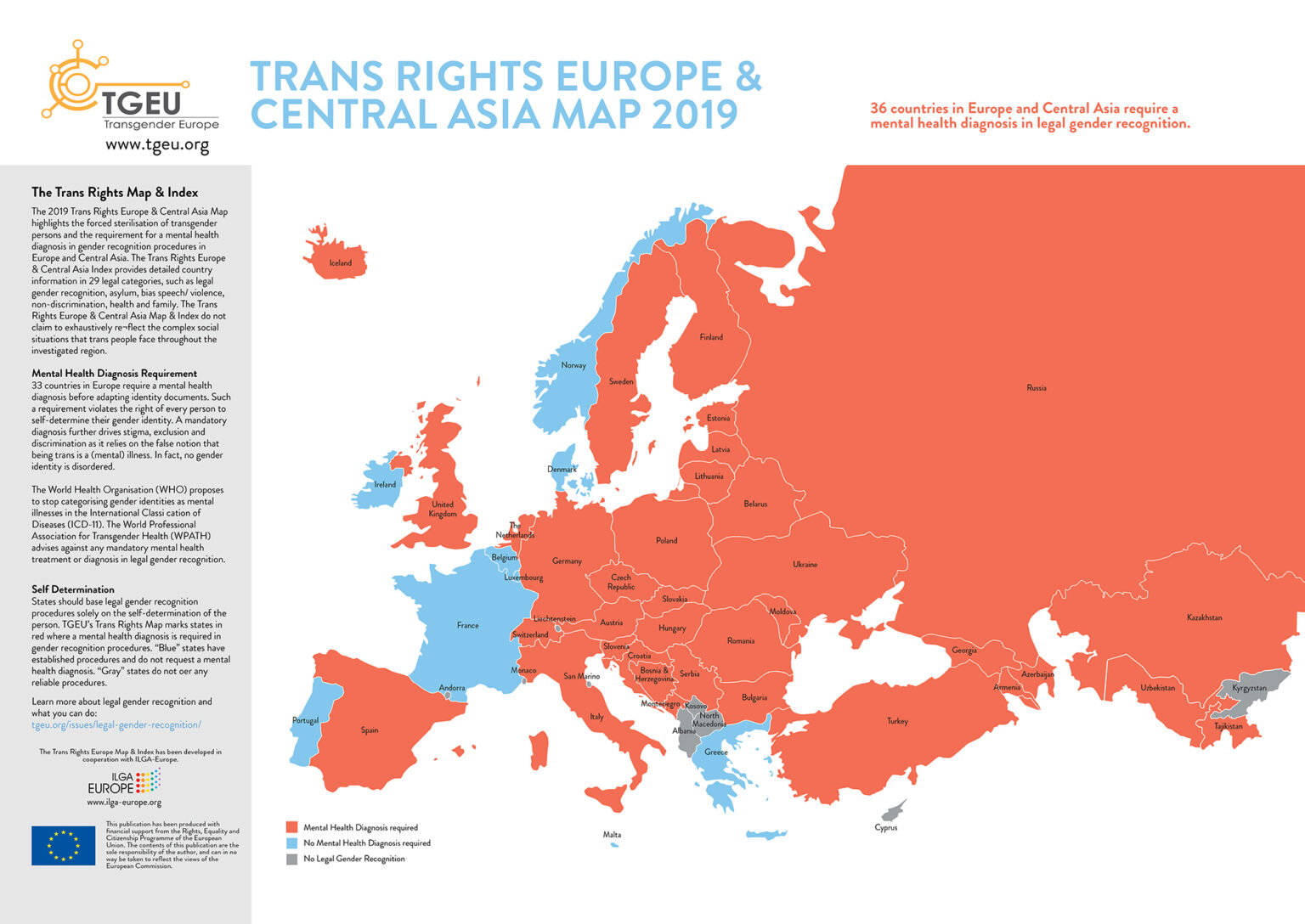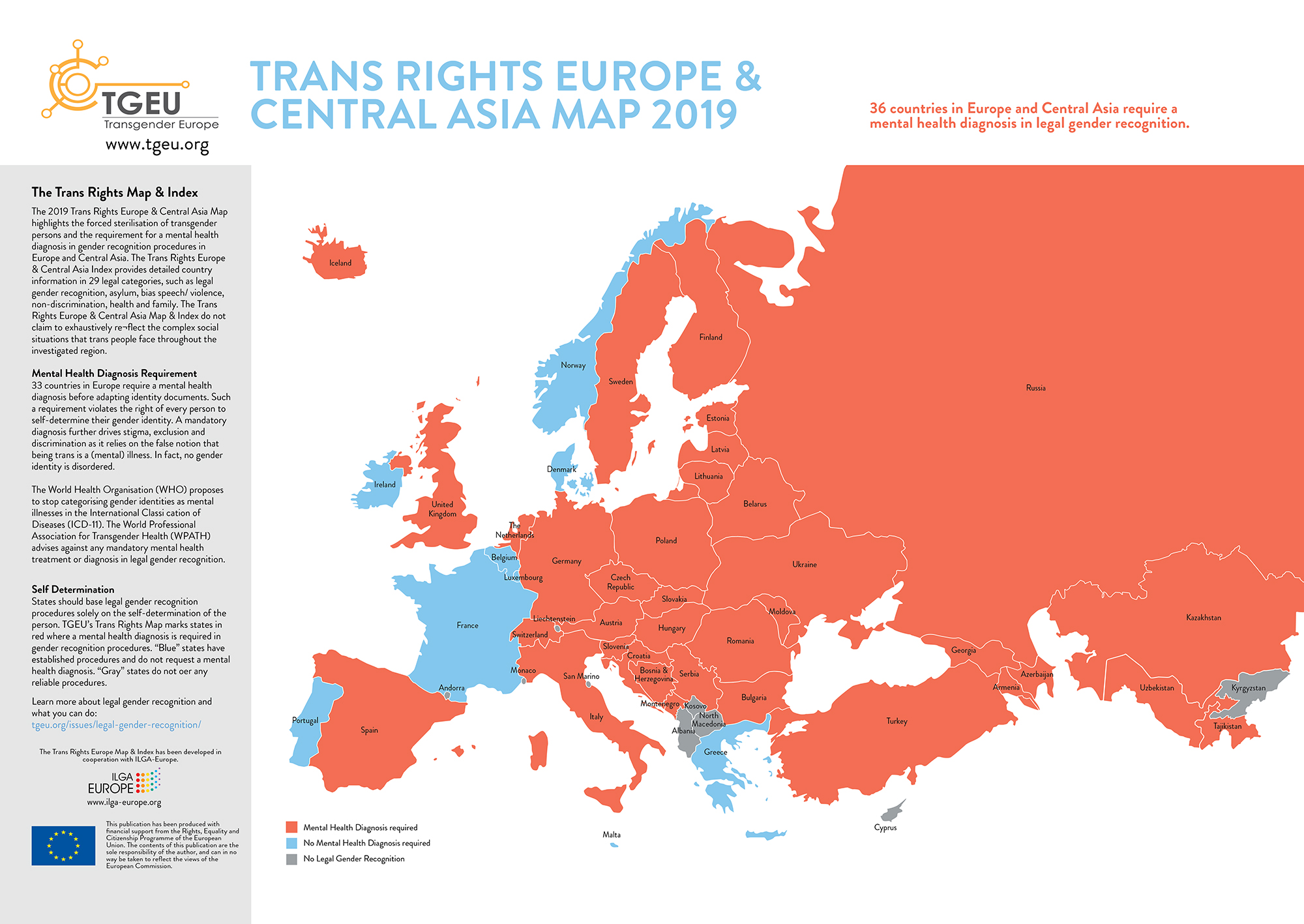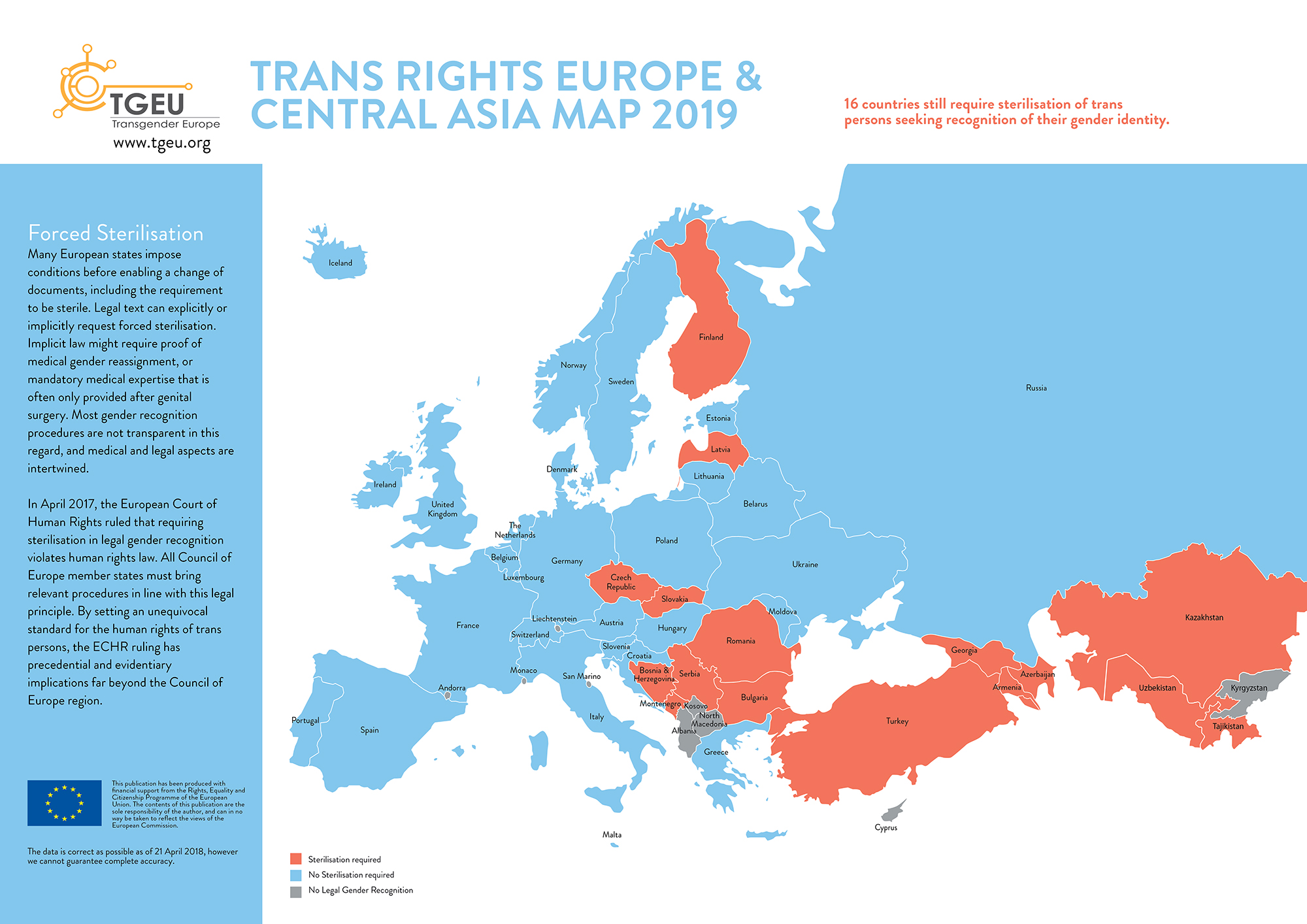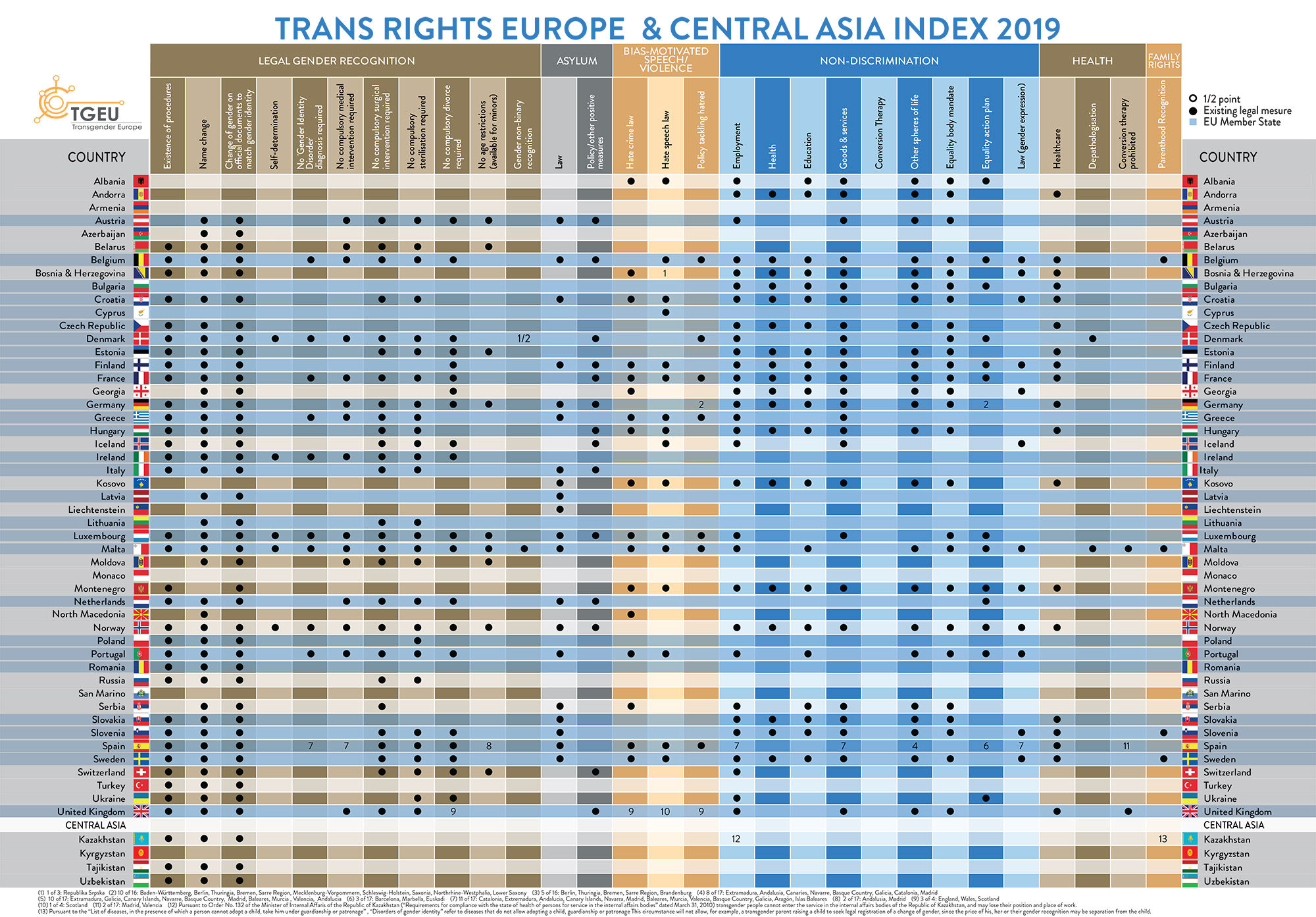Trans Rights Europe & Central Asia Map & Index 2019

About the Trans Rights Map & Index
The 2019 Trans Rights Europe & Central Asia Map highlights the forced sterilisation of transgender persons and the requirement for a mental health diagnosis in gender recognition procedures in Europe and Central Asia.
The Trans Rights Europe & Central Asia Index provides detailed country information in 29 legal categories, such as legal gender recognition, asylum, bias speech/ violence, non-discrimination, health and family. The Trans Rights Europe & Central Asia Map & Index do not claim to exhaustively reflect the complex social situations that trans people face throughout the investigated region.
Mental Health Diagnosis Requirement
36 countries in Europe and Central Asia require a mental health diagnosis before adapting identity documents.

Such a requirement violates the right of every person to self-determine their gender identity. A mandatory diagnosis further drives stigma, exclusion and discrimination as it relies on the false notion that being trans is a (mental) illness. In fact, no gender identity is disordered.
The World Health Organisation (WHO) proposes to stop categorising gender identities as mental illnesses in the International Classification of Diseases (ICD-11). The World Professional Association for Transgender Health (WPATH) advises against any mandatory mental health treatment or diagnosis in legal gender recognition.
States should base legal gender recognition procedures solely on the self-determination of the person.
TGEU’s Trans Rights Map marks states in red where a mental health diagnosis is required in gender recognition procedures. “Blue” states have established procedures and do not request a mental health diagnosis. “Gray” states do not offer any reliable procedures.
Learn more about legal gender recognition and what you can do improve it.
Forced Sterilisation
16 countries in Europe and Central Asia still require sterilisation of trans persons seeking recognition of their legal gender recognition.

Many states impose conditions before enabling a change of documents, including the requirement to be sterile. Legal text can explicitly or implicitly request forced sterilisation. Implicit law might require proof of medical gender reassignment, or mandatory medical expertise that is often only provided after genital surgery. Most gender recognition procedures are not transparent in this regard, and medical and legal aspects are intertwined.
In April 2017, the European Court of Human Rights ruled that requiring sterilisation in legal gender recognition violates human rights law. All Council of Europe member states must bring relevant procedures in line with this legal principle. By setting an unequivocal standard for the human rights of trans persons, the ECHR ruling has precedential and evidentiary implications beyond the Council of Europe region.
Trans Rights Europe & Central Asia Index

The Trans Rights Europe & Central Asia Index provides detailed country information in 29 legal categories, such as legal gender recognition, asylum, bias speech/ violence, non-discrimination, health and family.
The Trans Rights Europe & Central Asia Map & Index do not claim to reflect the complex social situations trans people face throughout the investigated region.
Fast Facts Trans Rights Europe & Central Asia Index
Legal gender recognition (LGR)
Identity documents that are in line with a person’s gender identity are important for trans people’s dignity, safety and access to human rights.
Such procedures exist in 42 of the 53 reviewed countries.
Out of the reviewed countries:
- 36 prescribe a mental health diagnosis,
- 16 countries demand sterility
- 22 require a divorce.
- 33 countries impose age barriers, making access to legal gender recognition harder or impossible for minors.
- 5 countries base legal gender recognition procedures on self-determination of the person
- 1 country recognises gender non-binary identities.
Asylum
- 19 of the 53 reviewed countries offer international protection on grounds of gender identity.
- 16 out of these are EU member states.
- 12 EU member states offer no international protection for trans refugees and are thus violating EU law.
Non-discrimination
- 30 countries protect against discrimination in employment.
- 9 EU member states do not protect against discrimination in employment and are thus violating EU law.
- 26 countries protect against discrimination in access to goods & services.
- 11 EU member states have yet to introduce such explicit protection to implement EU law properly.
- 22 of the reviewed countries protect against gender identity-based discrimination in education.
- Only 11 countries provide protection related to the gender expression of a person. This is particularly important for cross-dressers and those trans people not intending to undergo gender reassignment.
Bias-motivated crime
Only 17 countries have explicit laws on bias-motivated crime, whereas only 7 countries have positive measures in place that are aimed at combating bias motivated crime and hate speech.
Healthcare
- 19 countries offer express protection against discrimination in healthcare.
- Denmark and Malta are the only countries that have, to date, depathologised trans identities while ensuring stigma-free access to trans-specific healthcare for adults and minors.
- Only 2 countries prohibit conversion therapy on grounds of gender identity.
Family
- Only 4 countries recognise the gender identity of a trans parent on their child’s birth certificate.